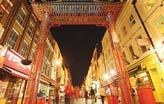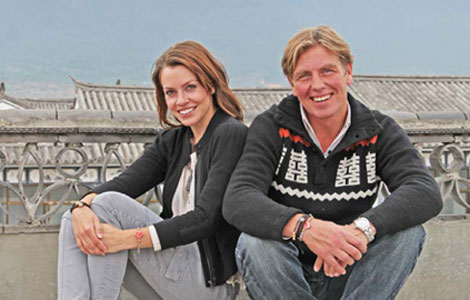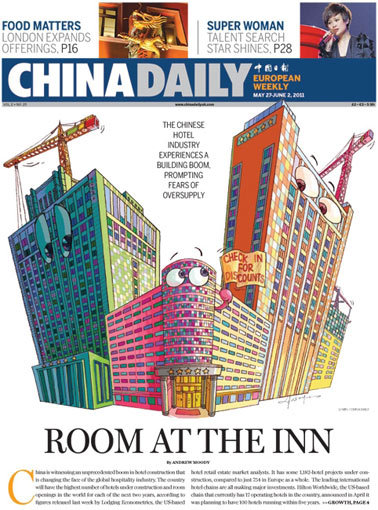Tomb Raider
Updated: 2011-05-20 11:01
By Matt Hodges (China Daily European Weekly)
The checkpoints are long gone (the compound was never walled off), but the lanes remain narrow enough at points that neighbors can still pass salt from one upper-story window to another with ease. Anti-Semitism from the Japanese was rare.
"Generally speaking, there was no discrimination against the Jews by the Japanese, but what you see is a subtle change of attitude as the Germans flexed their muscles," Bar-Gal says. "The Japanese told them they were controlling them to keep them safe, so you never really know."
As at other points of the tour, Bar-Gal whips out his iPad to introduce some of the heroes of the time.
The list includes Ho Feng Shan, the Chinese consul-general in Vienna who saved thousands of lives, and Japan's Chiune Sugihara, the diplomat who helped thousands of Jews escape Poland and Lithuania.
"Dr Ho is probably the most important Chinese gentile," Bar-Gal says, adding that he lobbied for the Shanghai Jewish Refugees Museum to be named after Ho.
What is just as interesting is the conundrum facing the current authorities as they struggle to deal with this sensitive slice of history.
It occurred just before the Communist Party of China came to power and nationalized property - some of which the Jews, most of whom came from bourgeois backgrounds, had recently purchased.
"About eight years ago, we thought we were going to lose whole rows of housing here," says Bar-Gal, discussing government plans to raze parts of the ghetto.
"Now they seem more interested in preserving it."
Apart from building the refugees museum at the site of the old Ohel Moshe Synagogue, authorities are apparently willing to rent the area out to developers - with the caveat that they cannot redevelop it.
"If you've got $700 million (490 million euros), I know the number of the man you should call," quips Bar-Gal.
"Funnily enough, there haven't been many takers so far."
Not that life in the ghetto was easy. Some 2,000 Jews died, mostly from malnourishment or disease; 366 couples married, including 10-15 mixed marriages, and 104 divorced.
Bar-Gal has been collecting Jewish gravestones and plans to build a memorial site, but has yet to win approval from the city.
"When I came here, not even one Jewish grave had been left intact where it used to stand," he says.
With Schindler's List co-producer Branko Lustig planning a Hollywood movie about wartime Shanghai later this year, public pressure to give the graves a home may mount.
Tentatively titled The Melanie Violin, the film, an unlikely romance between a Jewish musician and a Chinese woman, will be a Chinese-US co-production based on a novel by Chinese-American He Ning.
But for the moment, the memories of those who experienced the ghetto, or people like Allan Morrison, who are somehow connected to its past, keep it emotionally charged.
Halfway through the tour, in a tiny park that bears a plaque memorializing the "Stateless Refugees" - an euphemism for Jews fleeing Nazi persecution - Morrison was leafing through a dog-eared copy of the Emigranten Addressbuch (immigration address book) when he suddenly breaks into a smile.
"There he is. Adolf Sonnenfeld. 765 Tongshan Road," says the 75-year-old California physician, pointing to a name on some brittle yellow paper.
The tour book lists former Jewish residents of the Shanghai ghetto.
"That's my friend. He was brought here when he was about four. He remembers the ghetto.
He lived it. He was only allowed to stay there. He said it was very crowded, but he felt safe. He felt that at least they were respected."
"We're going to end our tour at 821 Tongshan Road," replies Bar-Gal, ever precise.
E-paper

Tapping into the future
Foreign companies are investing in China's water industry as many predict a growing profit margin.
Headhunters ride on growth
Commercial property rides wave
Learning from the past
Specials

Cuisine central
London's Chinatown is helping diners appreciate full palate of Chinese food

Tying the knot
Danish couple's high-end macrame export business takes off in the mountains of Yunnan.

Truly a super woman
Li Yuchun first came to prominence in 2005 as the Super Girl winner, and since then has become an international star.
